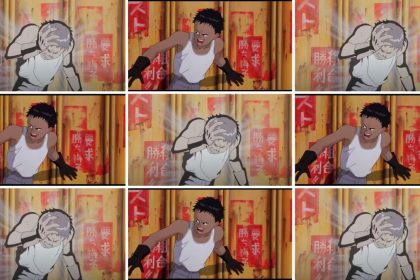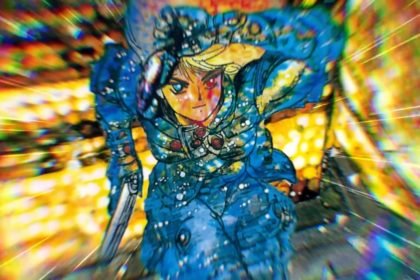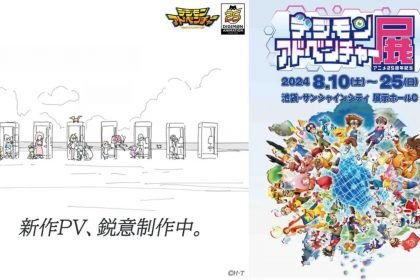Anime and manga have become a significant part of popular culture, captivating audiences worldwide with their unique storytelling and vibrant visuals. These forms of entertainment often tackle various themes, including love, friendship, and adventure. However, in recent years, there has been a growing recognition of the importance of mental health representation in anime and manga. This article will explore the ways in which anime and manga address these issues, the impact of such depictions, and the criticisms and limitations associated with these representations.
Mental Health Themes in Anime and Manga
Depiction of Anxiety and Depression
Anxiety and depression are two prevalent mental health issues that affect a substantial portion of the population. Anime and manga have been prominent in shedding light on these conditions, offering relatable portrayals that resonate with viewers and readers. Characters like Shinji Ikari from “Neon Genesis Evangelion” and Rei Kiriyama from “March Comes in Like a Lion” provide poignant examples of individuals struggling with anxiety and depression, respectively. These shows delve into the internal struggles, self-doubt, and isolation that accompany these conditions, allowing audiences to empathize with the characters’ experiences.
Exploration of Trauma and PTSD
Traumatic experiences can have long-lasting effects on a person’s well-being, often leading to conditions such as post-traumatic stress disorder (PTSD). Anime and manga have delved into the complexities of trauma and PTSD, providing narratives that explore the emotional and psychological aftermath of such experiences. Series like “Tokyo Ghoul” and “Attack on Titan” depict characters who have endured unimaginable trauma and must grapple with the associated psychological consequences. By portraying these stories, anime and manga raise awareness about the impact of trauma while offering a sense of catharsis and hope for healing.
Representation of Eating Disorders
Eating disorders, such as anorexia and bulimia, are serious mental health conditions that can have severe consequences on an individual’s physical and emotional well-being. Anime and manga have begun to address these issues, aiming to increase understanding and empathy. In works like “Perfect Blue” and “Fruits Basket,” characters are depicted struggling with disordered eating patterns, body image issues, and the societal pressures that contribute to these disorders. By exploring these themes, anime and manga challenge societal norms and foster conversations about body positivity and psychological issues.
Addressing Social Stigma and Mental Health Taboos
Society often stigmatizes these kind of issues, contributing to a culture of silence and misunderstanding. Anime and manga have played a vital role in challenging these stigmas and taboos by portraying characters who openly discuss and confront their challenges. Series like “Welcome to the NHK” and “Orange” tackle topics such as social anxiety, suicide, and self-harm, sparking important conversations about these sensitive subjects. By addressing social stigma head-on, anime and manga contribute to destigmatizing mental health and encourage individuals to seek help and support.
Further Readings: Anime Diversity and Disability Representation Issues
Positive Impact of Mental Health Representation
Creating Awareness and Understanding
One of the significant advantages of mental health representation in anime and manga is the potential to reach a vast audience and educate them about various issues. These mediums have a global following. Thus, allowing them to transcend cultural boundaries and provide insights into different conditions. Through compelling narratives and relatable characters, anime and manga can increase awareness and understanding of mental health. It can potentially reducing the misconceptions and ignorance that surround these issues.
Providing Validation and Support
For individuals facing mental health challenges, finding validation and support can be crucial. Anime and manga offer a unique avenue for individuals to see themselves represented on screen or in the pages of a comic.
Characters who struggle with these issues can serve as role models and sources of comfort. These characters can show viewers and readers that they are not alone in their experiences. These representations can foster a sense of belonging, reduce feelings of isolation, and encourage individuals to seek help and support in their own lives.
Criticism and Limitations
Romanticizing Mental Health Issues
While anime and manga have made significant strides in portraying mental health issues, there is a risk of unintentionally romanticizing these struggles. Some narratives may inadvertently glamorize or sensationalize these conditions. Some also potentially trivializing the real-life challenges faced by individuals. It is essential for creators to approach these topics responsibly. It is best to avoid harmful tropes and providing accurate and nuanced portrayals that reflect the complexities of psychological issues.
Lack of Diversity in Representations
Another criticism directed at the representation of mental health in anime and manga is the lack of diversity in the portrayals. Mental health issues affect individuals from all walks of life. Yet the majority of characters depicted in these mediums are often from a limited range of backgrounds. There is a need for greater inclusivity and representation of diverse communities. Including marginalized groups. In order to provide a more comprehensive and accurate portrayal of mental health challenges.
Conclusion
The representation of mental health issues in anime and manga has become increasingly important in recent years. These mediums have the power to educate, destigmatize, and provide comfort to individuals facing mental health challenges. By depicting relatable characters and addressing a range of mental health themes, anime and manga contribute to a more empathetic and inclusive society. However, it is crucial to approach these portrayals responsibly. The proper way to do is to avoid harmful stereotypes. It is also good to strivie for greater diversity and accuracy. With continued progress and awareness, anime and manga can play an even more significant role in promoting mental health well-being.
FAQs (Frequently Asked Questions)
Can watching anime and reading manga improve mental health?
Watching anime and reading manga can provide a form of escapism and entertainment. That’s why watching anime can have a positive impact on mental well-being. Engaging with relatable characters and compelling narratives can offer comfort, inspiration, and a sense of connection, potentially improving one’s overall mood and emotional state.
Are there any anime or manga specifically focused on therapy or counseling?
Yes, there are anime and manga that specifically explore the themes of therapy and counseling. Series such as “Welcome to the Ballroom” and “Colorful” delve into the process of therapy. These series also depict characters seeking professional help to address their issues.
How can anime and manga be used as a tool for starting conversations about mental health?
Anime and manga can be used as a catalyst for discussions about mental health. This can be achieved by providing relatable narratives and characters that resonate with a wide audience. By sharing personal experiences and insights sparked by these stories, individuals can open up conversations, promote empathy, and increase understanding about mental health.
Do anime and manga accurately reflect the realities of mental health issues?
While anime and manga can offer valuable insights into these issues, it is important to remember that they are fictional mediums. While some portrayals may be accurate, others may take creative liberties for the purpose of storytelling. It is essential to seek additional sources of information and professional guidance. It is also important to seek a comprehensive understanding of mental health conditions.
Are there any resources available for individuals seeking psychological support through anime and manga?
Yes, there are online communities, forums, and websites dedicated to discussing mental health in the context of anime and manga. These platforms provide a space for individuals to share their experiences. Some online forums can also help to find support, and discover recommendations for series that address specific mental health themes.













